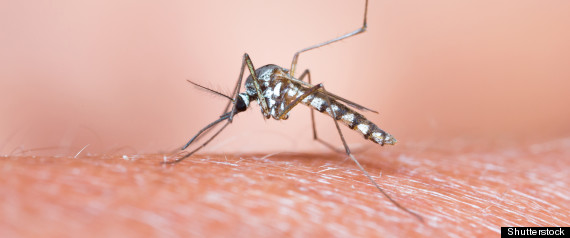
A vaccine to protect healthy adults from malaria[1] was found to be safe and effective in an early-stage clinical trial.
The results of the phase-1 trial on the PfSPZ vaccine are published in the journal Science[2] .
"The global burden of malaria is extraordinary and unacceptable," Anthony S. Fauci, M.D., director of the National Institute of Allergy and Infectious Diseases, said in a statement. "Scientists and health care providers have made significant gains in characterizing, treating and preventing malaria; however, a vaccine has remained an elusive goal. We are encouraged by this important step forward[3] ."
Malaria was the cause of 655,000 deaths around the world[4] in 2010, with most of these deaths occurring in the African region, according to the Centers for Disease Control and Prevention. People most highly at risk for infection are those with an already-lowered immunity, such as young children, travelers (who are therefore not exposed and lack immunity) and pregnant women.
The trial of the vaccine, which is made of weakened sporozoites of the malaria-causing parasite Plasmodium falciparum, was conducted by researchers at the NIAID, the Naval Medical Research Center and the Walter Reed Army Institute of Research. It involved 57 healthy adults between ages 18 and 45, none of whom had ever had malaria before.
First, researchers tested the safety of the vaccine. They administered it to 40 of the participants, while the other 17 did not receive the vaccine. Among those who received the vaccine, researchers administered different numbers of doses (anywhere from two to six) at increasing dosages to test the safety of the vaccine. Researchers kept close watch of the participants for the seven days after they received the vaccine; none of them had any bad side effects nor infections from malaria.
Then, researchers evaluated the effectiveness of the vaccine in protecting against malaria. For this, they allowed five mosquitoes to bite the study participants (including those not vaccinated) three weeks after those who were vaccinated received their last installment. The mosquitoes all carried the P. falciparum strain.
The study participants were monitored for a week as outpatients after they were bitten by the mosquitoes. After the week, they went to the NIH Clinical Center so that the researchers could monitor if they developed malaria (and then treat them with anti-malarial drugs if they did develop an infection).
Most (16 out of 17) of those who received the lower dosages of the vaccine went on to develop malaria, as well as nearly all (11 out of 12) of those who weren't vaccinated at all. But, researchers found that higher dosages of the vaccine seemed to offer protection, with only one-fifth of those receiving higher dosages becoming infected.
Now, researchers noted that an important next step is figuring out how to make the vaccine more feasible to deliver, as right now it's only been developed as an intravenous vaccine (where the vaccine has to be delivered directly into a person's vein).
Currently, vector control[5] is the main method of preventing malaria, according to the World Health Organization. This involves using things like insecticidal nets and indoor spraying with insecticides. Antimalarial medications[6] are another way of preventing malaria; with this method, high-risk people, such as pregnant women and children, are administered the medication during high-transmission seasons.
Also on HuffPost:
References
- ^ protect healthy adults from malaria (www.eurekalert.org)
- ^ journal Science (www.sciencemag.org)
- ^ encouraged by this important step forward (www.eurekalert.org)
- ^ cause of 655,000 deaths around the world (www.cdc.gov)
- ^ vector control (www.who.int)
- ^ Antimalarial medications (www.who.int)
- ^ Send us a tip (www.huffingtonpost.com)
- ^ Send us a photo or video (www.huffingtonpost.com)
- ^ Suggest a correction (www.huffingtonpost.com)

0 comments:
Post a Comment